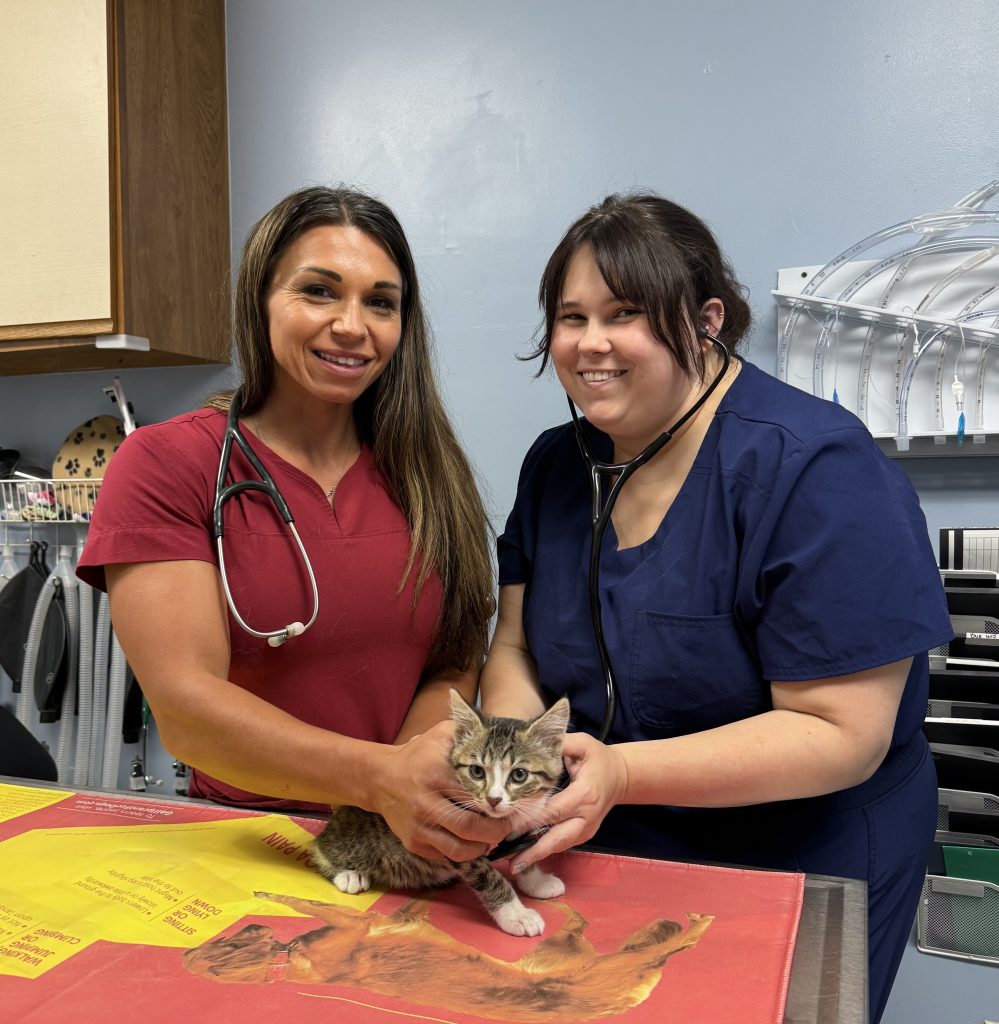
By the team at Willoughby Veterinary Hospital
If your cat has been diagnosed with a heart murmur, it’s completely normal to feel concerned. The good news is that not all murmurs are serious—and with proper care and monitoring, many cats live full, healthy lives.
1. What Is a Heart Murmur?
A heart murmur is an extra “whooshing” sound your veterinarian hears when listening to your cat’s heart. It happens when blood flows more turbulently than usual inside the heart or nearby vessels.
Murmurs are graded on a scale from I to VI:
- Grade I–II: Very soft, sometimes hard to hear.
- Grade III–IV: Easily heard on both sides of the chest.
- Grade V–VI: Very loud, and in the most severe cases, can even be felt through the chest wall.
Louder doesn’t always mean worse—some mild issues cause loud murmurs, while some serious heart problems are surprisingly quiet.
2. Why Do Cats Get Heart Murmurs?
Murmurs can happen for several reasons:
- Innocent murmurs – Common in kittens and often disappear by about five months of age.
- Hypertrophic cardiomyopathy (HCM) – A thickening of the heart muscle, common in adult cats.
- Anemia or fever – Can cause temporary changes in blood flow.
- Hyperthyroidism or high blood pressure – Common in older cats.
- Stress – Even anxiety during an exam can make a murmur louder.
3. Signs to Watch For
Many cats with murmurs have no obvious symptoms. When signs do appear, they may include:
- Tiredness or weakness
- Rapid or labored breathing
- Decreased appetite or weight loss
- Pale gums
If you see any of these, schedule a checkup right away.
4. How We Diagnose a Heart Murmur
We often detect murmurs during a routine physical exam. Depending on your cat’s age and overall health, we may recommend:
- Echocardiogram (ultrasound of the heart)
- Chest X-rays or ECG (electrocardiogram)
- Blood pressure and lab tests
These help us determine whether the murmur is harmless or related to an underlying heart condition.
5. Treatment and Monitoring
Not every murmur needs treatment—but regular monitoring is key. If treatment is needed, it focuses on the underlying cause and may include:
- Prescription diets (for heart disease or thyroid issues)
- Medications to support heart function
- Supplements such as taurine, CoQ10, or omega-3s
- Stress management and gentle exercise
6. The Takeaway
A heart murmur isn’t always cause for alarm, but it does deserve attention. Regular checkups, early testing, and open communication with your veterinarian help ensure your cat’s heart stays as healthy as possible.
If your cat has been diagnosed with a murmur—or you’d like to schedule a heart check—call Willoughby Veterinary Hospital today. We’re here to help keep your feline friend’s heart beating strong. ❤️🐾
